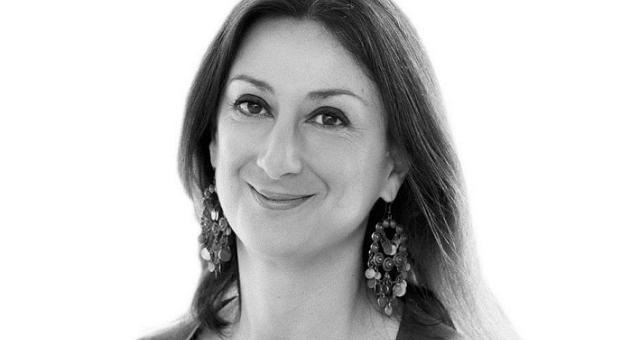International press freedom groups condemn killing of Maltese investigative journalist
[vc_row][vc_column][vc_column_text]

Daphne Caruana Galizia
Sixteen press freedom groups condemn the killing of investigative journalist Daphne Caruana Galizia and demand an immediate and independent investigation into her death.
“The murder of a prominent investigative journalist in broad daylight in an EU Member State underscores the seriousness of this crime. Daphne Caruana Galizia’s work as a journalist to hold power to account and shine a light on corruption is vital to maintaining our democratic institutions. Her killing is a loss for her country and for Europe”, Hannah Machlin, project manager for Index on Censorship’s data platform Mapping Media Freedom, said.
Daphne Caruana Galizia was killed when the car she was driving exploded in Bidnija around 15.00 on 16 October in what is thought to have been a targeted attack..
“The barbaric murder of Daphne Caruana Galizia is an attack on journalism itself. This crime is meant to intimidate every investigative journalist,” Dr Lutz Kinkel, Managing Director of the European Centre for Press and Media Freedom, said.
“Because Prime Minister Joseph Muscat and parts of Malta’s political elite were targets of Galizia’s disclosures, we strongly recommend an independent investigation of this case. The killers have to be found and put on trial.”
The blast left her vehicle in several pieces and threw debris into a nearby field. Half an hour before the powerful explosion, the journalist posted a comment about a libel claim the prime minister’s chief of staff had brought against a former opposition leader over comments the latter made about corruption.
Galizia filed a police report 16 days ago saying she was being threatened.
Galizia had conducted a series of high profile corruption investigations and has been subject to dozens of libel suits and harassment. Because of her research, in February, assets were frozen following a request filed by Economic Minister Chris Cardona and his EU presidency policy officer Joseph Gerada.
On 24 August opposition leader Adrian Delia filed a lawsuit against her over stories linking him to offshore accounts totalling to £1 million earned from alleged prostitution in London flats. On 11 March Silvio Debono, owner of the real estate investment company DB Group, filed 19 libel cases against her after Caruana Galizia published a number of articles about his deals with the Maltese government to take over a large tract of high value public land.
Galizia also conducted an investigation linking the Prime Minister Joseph Muscat and his wife Michelle to secret offshore bank accounts to allegedly hide payments from Azerbaijan’s ruling family, which were unveiled in the Panama Papers. She worked on this investigation with her son Matthew Caruana Galizia, a journalist for the Pulitzer prize winning International Consortium of Investigative Journalists, who has had his posts on allegations of wrongdoing by Prime Minister Joseph Muscat and his associates censored on Facebook.
On 17 October 2017, her family filed an urgent application for the Duty Magistrate Consuelo Scerri Herrera to abstain from investigating Caruana Galizia’s murder because of the court’s “flagrant conflict of interest”. In 2011, the magistrate initiated court proceedings against the journalist over comments she had made about Magistrate Herrera.
Seven reports of violations of press freedom were verified in Malta in 2017, according to Index on Censorship’s Mapping Media Freedom project. Five of those are linked to Caruana Galizia and her family.
The murder has brought widespread condemnation from the international community including statements from Council of Europe Secretary General Thorbjørn Jaglan and OSCE’s Media Freedom Representative Harlem Désir.
We, the undersigned press freedom organisations call for:
— An independent and transparent investigation into the killing of Daphne Caruana Galizia
— Protection for her family members and for other Maltese journalists who have been under threat
— Measures to protect the environment for independent and critical journalism to ensure that reporters can work freely
———————————————————————
The Association of European Journalists (AEJ)
The Center for Investigative Reporting
Committee to Protect Journalists
The European Centre for Press and Media Freedom
The European Federation of Journalists (EFJ)
Freedom of the Press Foundation
Index on Censorship
International News Safety Institute (INSI)
International Federation of Journalists (IFJ)
International Press Institute (IPI)
Osservatorio Balcani e Caucaso Transeuropa (OBCT)
Platform of Independent Journalism (P24)
Reporters Sans Frontieres (RSF)
South East Europe Media Organisation (SEEMO) [/vc_column_text][/vc_column][/vc_row][vc_row][vc_column][vc_basic_grid post_type=”post” max_items=”12″ style=”load-more” items_per_page=”4″ element_width=”6″ grid_id=”vc_gid:1508321261018-6a10a188-6c0b-6″ taxonomies=”8996″][/vc_column][/vc_row]

